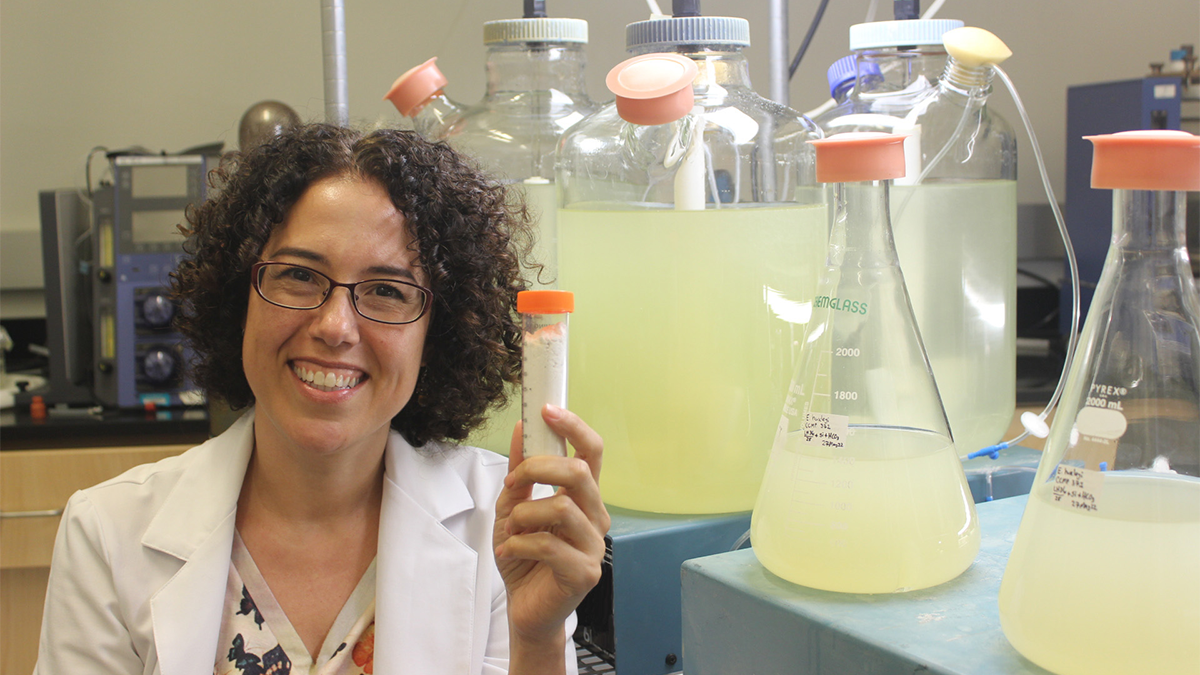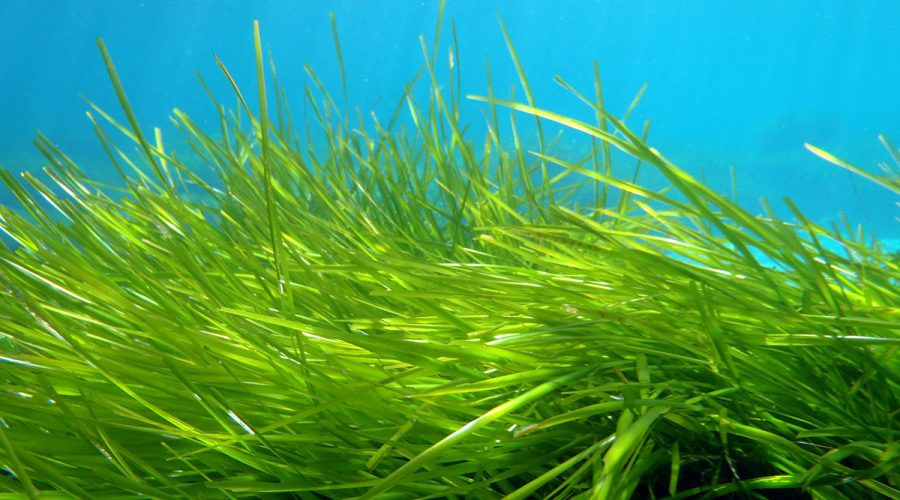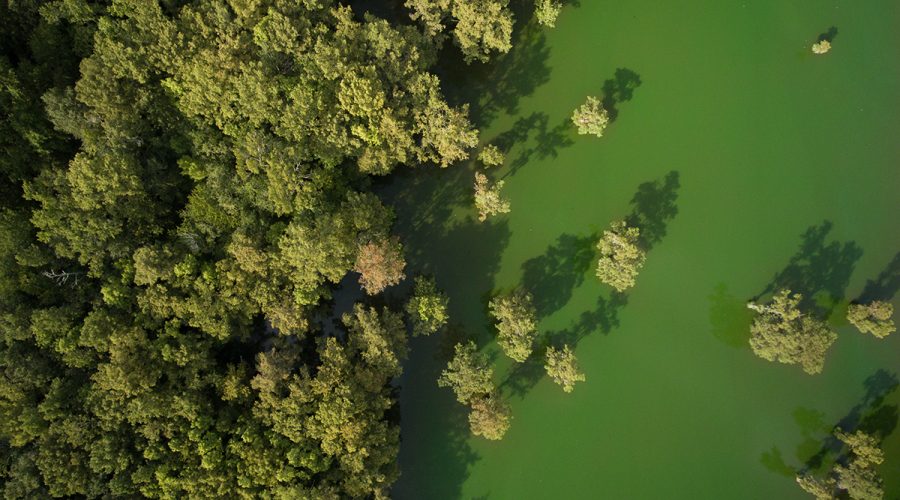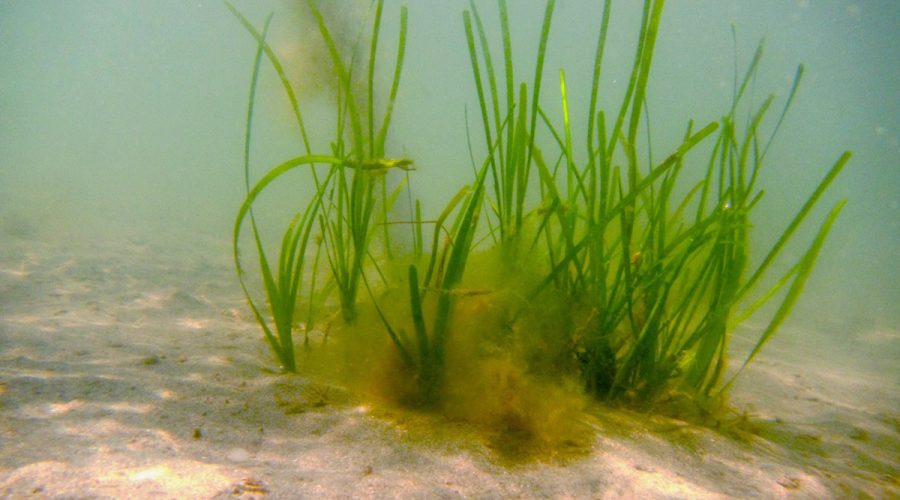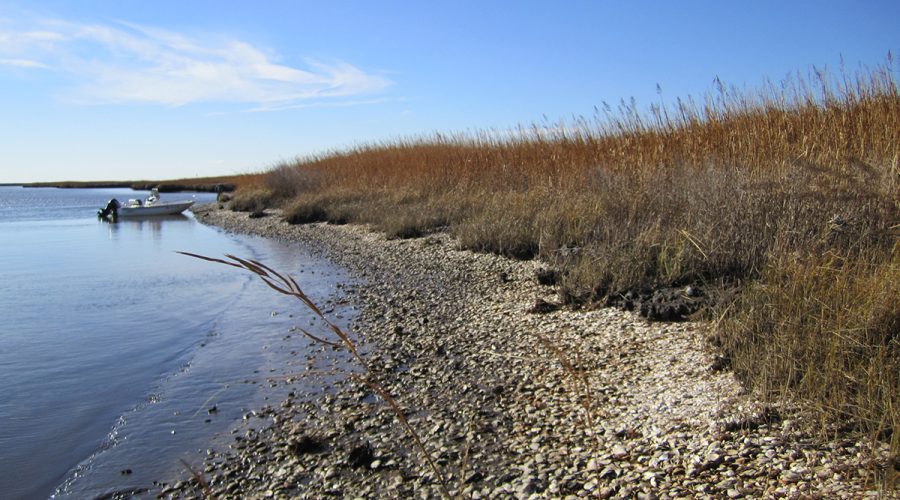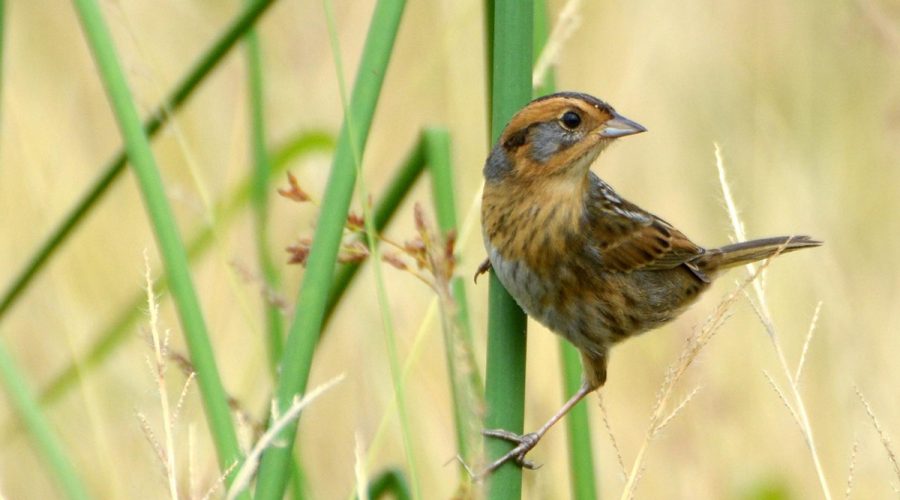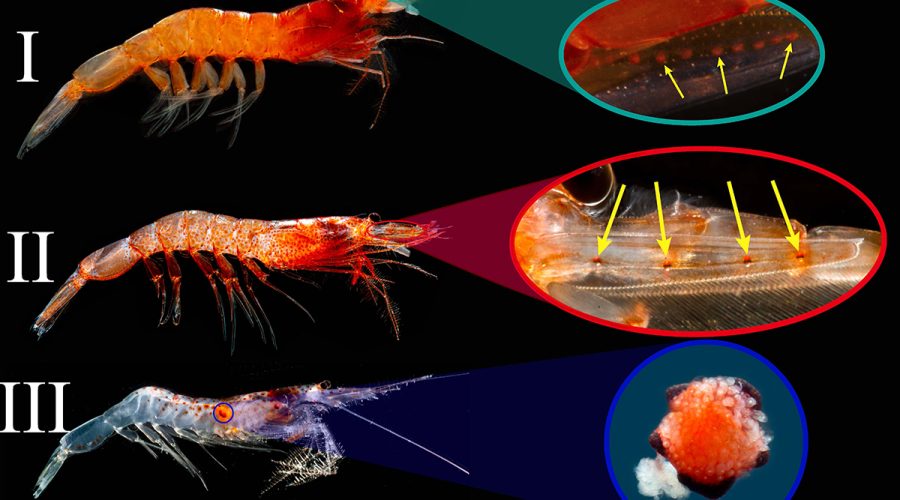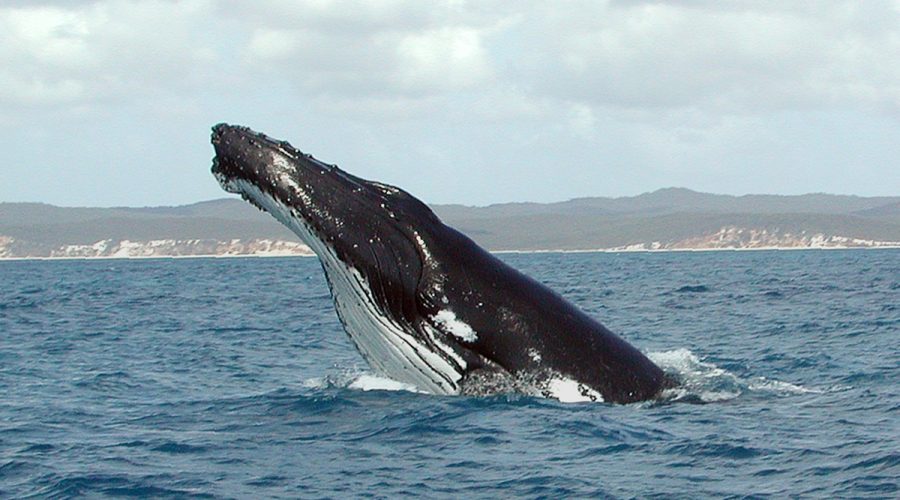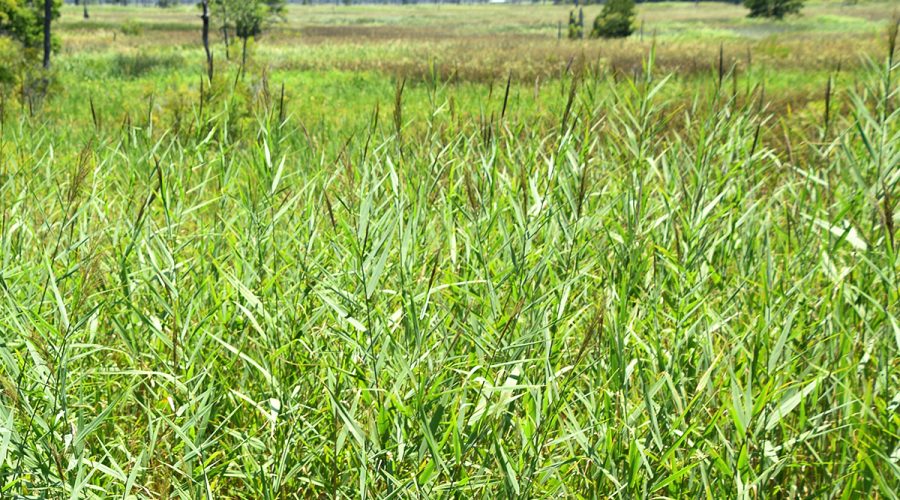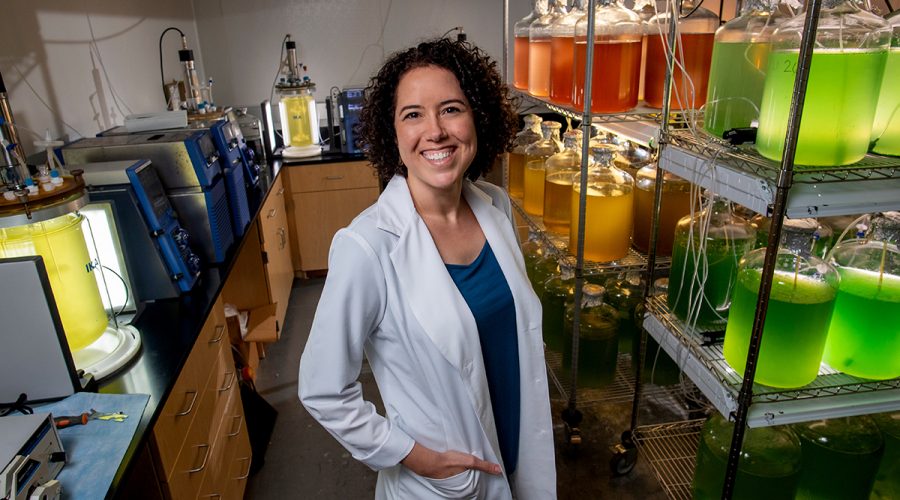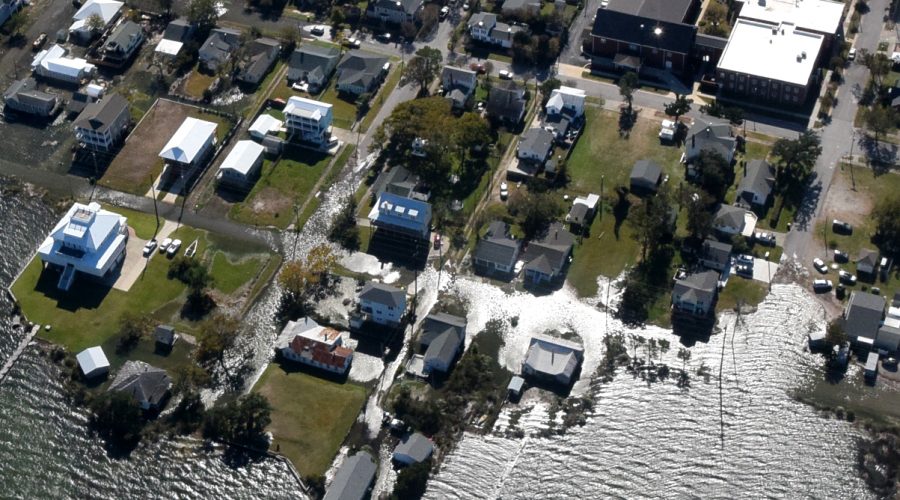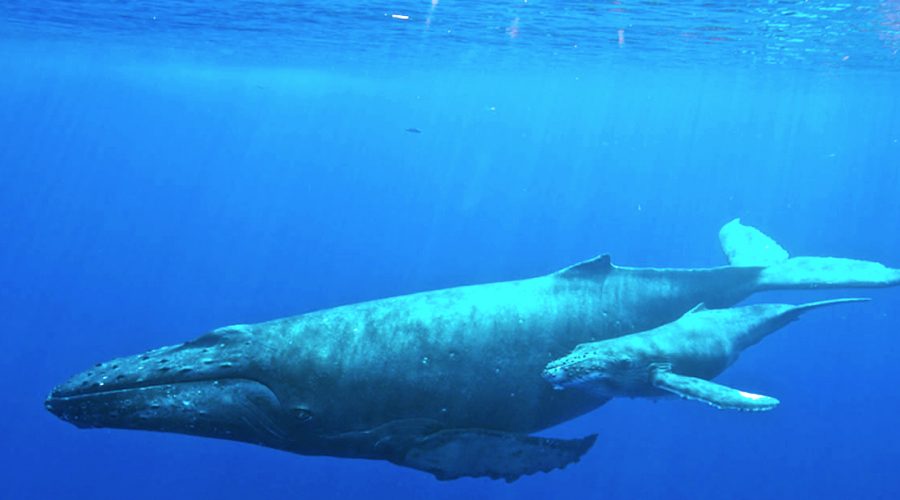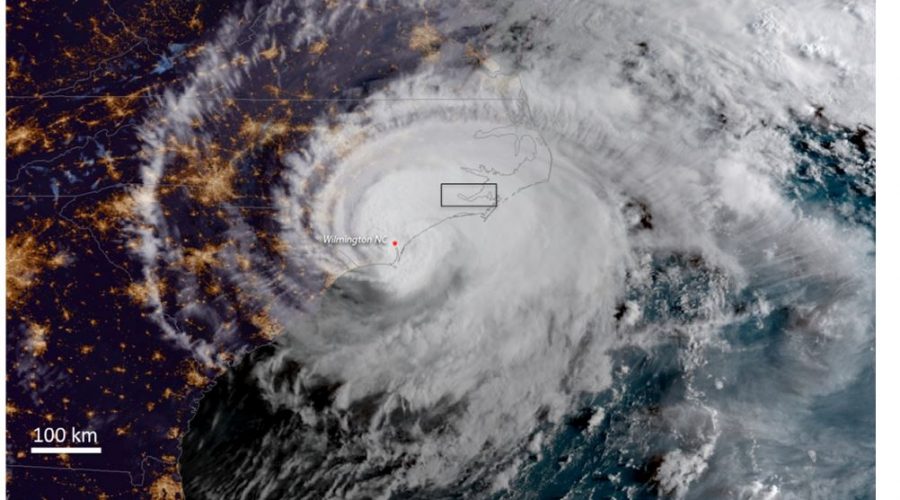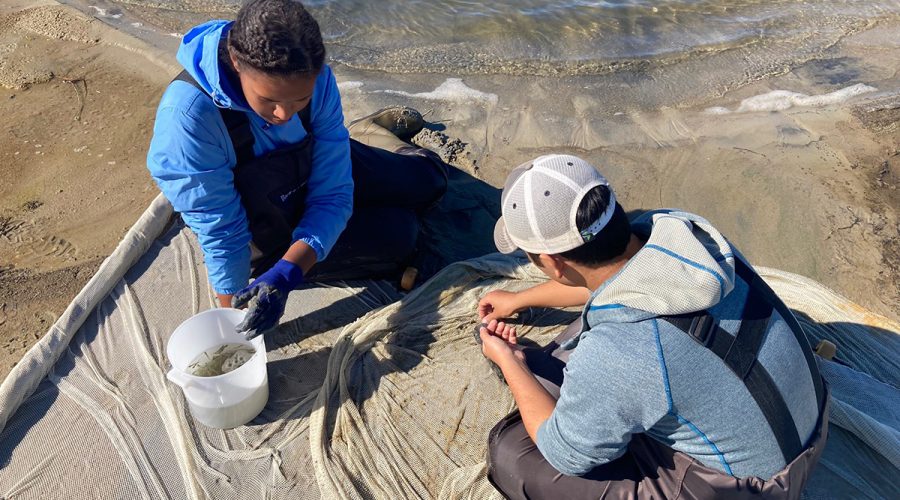Catharina Alves-de-Souza is part of a team studying how to best produce biogenic limestone, which could be used to significantly cut carbon dioxide emissions generated in the cement-making process.
Science
Sugars secreted by seagrass roots sweeten habitat: Study
The finding could increase the understanding of what’s going on in the sediment below and around seagrass root systems and improve seagrass conservation approaches.
Study links timing of blue-green blooms, airborne particles
UNC Institute of Marine Science researchers have found that the life cycles of algal blooms caused by cyanobacteria in water correlates to the airborne presence of fine particulate matter that the EPA calls “the greatest risk to health.”
NC water quality thresholds may leave seagrass vulnerable
New research from UNC shows that the state’s current water quality standards for chlorophyll-a and turbidity may not protect submerged aquatic vegetation in high-salinity estuaries considered economically and environmentally vital.
Study finds oyster sustainability among Indigenous peoples
Archaeological examinations of middens published this week show that Native Americans and Australians were successful at sustainably harvesting shellfish over thousands of years.
Competitors face off to create fresh water with wave power
Competition demonstrates that wave-powered desalination systems can supply fresh water to people in coastal locations, including in disaster-recovery situations.
Collaborative seeks to add radio towers for tracking wildlife
North Carolina researchers and conservationists are working with others in several states to snag a $1 million federal grant to expand and maintain a network of automated radio tracking towers connected to the Motus Wildlife Tracking System.
Study of shrimp eyes opens window into life in the deep sea
UNCW researcher Lorian Schweikert was on a team that found the light organ patterns on the bodies of deep-sea shrimp were the best predictor of the size of their eyes.
Whales’ rebound in Australia a success story: Duke biologist
Conservation biologist David Johnston at the Duke University Marine Lab in Beaufort says Australia’s recent decision to remove humpback whales from its endangered species list is a conservation victory and pivot point.
New technique using coral helps reconstruct past climates
UNC Chapel Hill doctoral candidate Hunter Hughes has developed a new technique, inspired by seismology, to reconstruct past climates using corals.
Nonnative phragmites may help with climate resilience
For years, discussions about the invasive reed focused on eradication, but recent research finds the plant can help protect against erosion and sequester carbon.
UNCW lab may hold answers to algal bloom questions
Catharina Alves-de Souza, director of the University of North Carolina Wilmington Algal Resources Collection, was recently awarded a National Science Foundation grant to help in identifying microalgae species.
New report projects sea levels to rise a foot in 30 years
UNC sea level rise researcher Rick Luettich says the report is notable for the certainty of its predictions.
Whales eat much more than previously thought: Study
A recent study found that baleen whales can consume 5 to 30% of its body mass on a daily basis, illustrating the large impact they have on the marine food web.
Lower Neuse River adapted, recovered from Florence: Study
A recent study looked at the effects of 2018’s Hurricane Florence on the Neuse River’s physical landscape and the Neuse estuary.
Students study ponds Dorian created on North Core Banks
UNC-IMS undergraduate students spent the fall semester studying new ponds created during 2019’s Hurricane Dorian on the northern most barrier island of Cape Lookout National Seashore.

